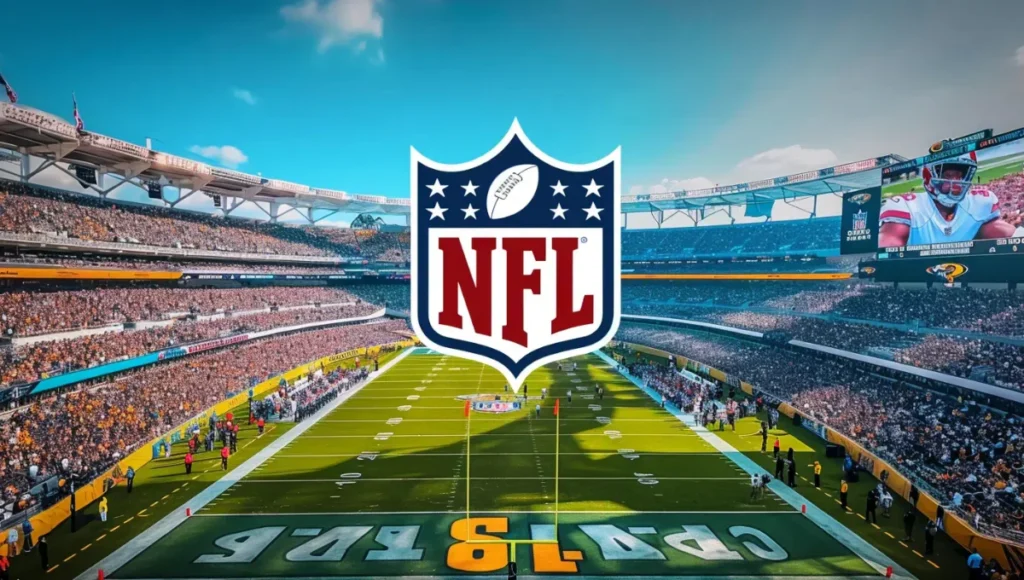Geo-restrictions are digital barriers set by content providers to control where their services can be accessed. In sports streaming, these restrictions limit viewers in certain countries from watching live games or events due to licensing agreements, broadcasting rights, and regional regulations.
For example, a sports league might allow only viewers in specific countries to stream matches through official broadcasters.
These limits can be frustrating for sports fans who want to watch their favorite teams or tournaments but find the content blocked in their location. Understanding geo-restrictions helps you find ways to access live sports legally and safely, no matter where you are in the world.
Why Are Sports Streams Geo-Restricted?
Sports streams are often geo-restricted due to legal and business reasons. The main factors include:
1. Broadcasting Rights and Licenses
Sports leagues and organizations sell broadcasting rights to different companies in various regions. These companies pay large sums for exclusive rights to stream games in specific countries or areas.
Because of these agreements, streaming services block access from outside their licensed zones to protect their investments.
2. Regional Advertising and Sponsorship Deals
Advertisements shown during sports broadcasts are often targeted to specific regions. Geo-restrictions help broadcasters deliver ads relevant to local audiences, maximizing revenue from sponsors.
3. Local Laws and Regulations
Some countries have strict rules about what kind of content can be shown and how. Streaming services must comply with these regulations, which can limit where streams are available.
4. Preventing Piracy and Unauthorized Access
Geo-restrictions help control who can watch sports streams, reducing illegal sharing and piracy, which affects revenue for leagues and broadcasters.
Because of these reasons, you may find your favorite sports streams blocked when you travel or live outside the broadcast area. But there are ways to work around these restrictions to enjoy live sports from anywhere.
How to Check If a Sports Stream Is Geo-Blocked in Your Location

Sometimes, you might try to watch a live sports stream only to find it blocked or unavailable. To confirm if this is due to geo-restrictions, follow these simple steps:
1. Attempt to Access the Stream Normally
First, try to open the sports streaming website or app from your device as you usually would. If the content loads and plays, you are likely not blocked. If you see a message like “Content not available in your region” or “This video is blocked,” geo-restrictions are probably the cause.
2. Check for Error Messages
Look carefully for specific error messages. Common phrases include:
- “This content is not available in your country”
- “Access denied”
- “Video unavailable due to licensing restrictions”
These are strong indicators of geo-blocking.
3. Use Online Tools to Test Your Location Access
Some websites allow you to check if a stream is accessible from different countries. Tools like GeoPeeker or Down for Everyone or Just Me can show how your chosen streaming site behaves in other regions.
4. Try Accessing the Stream via a VPN
If you have access to a VPN, connect to a server in a country where the stream should be available. If the stream works with the VPN but not without it, geo-restriction is confirmed.
5. Ask Others or Check Social Media
Sometimes streaming services face technical issues unrelated to geo-blocking. Checking social media or forums for updates can help confirm if the problem is location-based or a wider service outage.
By following these steps, you can quickly tell if geo-restrictions are stopping you from watching your favorite sports online. Once confirmed, you can explore options to bypass these blocks safely.
What Methods Can You Use to Bypass Geo-Restrictions for Sports Streaming?

Geo-restrictions can block access to live sports based on your location. Whether you’re traveling abroad or living in a country where a particular stream isn’t available, you can bypass these restrictions using the following detailed and reliable methods:
1. Using a VPN (Virtual Private Network)
A VPN is the most popular and effective way to bypass geo-restrictions when streaming live sports. It works by rerouting your internet traffic through a server located in a country where the sports stream is accessible.
This changes your IP address to make it appear as though you are browsing from that country. VPNs also encrypt your internet connection, adding a layer of security and privacy while you stream.
Top VPN services like ExpressVPN, NordVPN, and Surfshark offer fast, reliable connections optimized for streaming. They regularly update their server lists to avoid detection by streaming platforms that try to block VPN traffic. Besides unblocking geo-restricted content, VPNs protect you from hackers, ISPs throttling your bandwidth, and other privacy threats.
VPNs are easy to use with apps available for smartphones, tablets, computers, smart TVs, and more. However, since VPNs encrypt all your traffic, they may sometimes slightly reduce your internet speed. Choosing a high-quality VPN provider with optimized servers can minimize this impact.
2. Smart DNS Services
Smart DNS is a technology that lets you bypass geo-blocks by redirecting only the parts of your internet traffic that reveal your geographic location. Unlike VPNs, Smart DNS doesn’t reroute or encrypt your entire connection, which usually results in faster streaming speeds. This can be a great benefit for sports fans who want minimal buffering and smooth HD or 4K streams.
Another advantage of Smart DNS is that it works on a wider range of devices, including those where VPN apps might not be supported, such as gaming consoles, smart TVs, or some streaming devices. Setup is often done manually by changing DNS settings on your device or router.
However, Smart DNS does not provide encryption or protect your privacy online. It simply tricks streaming services about your location, so if privacy is important, pairing Smart DNS with a VPN might be necessary. Also, not all streaming services support Smart DNS, so its effectiveness can vary.
3. Proxy Servers
Proxy servers act as intermediaries between your device and the internet. When using a proxy, your requests to access a sports stream go through the proxy server, which replaces your IP address with its own. This can help mask your location and bypass geo-blocks.
While proxies can be easy to use and sometimes free, they come with several downsides. Unlike VPNs, proxies generally do not encrypt your traffic, leaving your data exposed to potential risks. They also tend to be slower and less reliable, often resulting in buffering or connection drops during live streams.
Streaming platforms actively block many proxy servers, which means your access might be temporary or inconsistent. For these reasons, proxies are not recommended for serious sports streaming but can be used as a quick fix for occasional viewing.
4. Browser Extensions
Some browsers offer extensions that provide proxy or VPN-like services to unblock geo-restricted content. These extensions are typically quick to install and can be a convenient way to access streams directly within your browser without installing full VPN software.
However, these browser-based solutions often have limitations. They usually offer fewer server options, slower speeds, and less security compared to standalone VPN apps. Additionally, most of these extensions only protect traffic within the browser itself, not other apps or system-wide connections.
Browser extensions may work well for casual users who want to watch sports highlights or replays but are generally less reliable for live streaming, which demands stable, high-speed connections.
5. Switching Networks or Using Mobile Hotspots
Sometimes geo-restrictions or access issues might be linked to your current network rather than your actual location. For example, workplace or school Wi-Fi may block certain streaming services, or your ISP might impose restrictions.
Switching to a different Wi-Fi network, using your mobile data plan, or creating a mobile hotspot can sometimes help bypass these localized blocks. This method is simple and doesn’t require additional software or subscriptions.
However, this only works if the restriction is network-based, not if the streaming service itself blocks your country. It’s a quick troubleshooting step but not a full solution for geo-restrictions tied to your geographical location.
6. Using Alternative Official Broadcasters
Many major sports events are broadcast by different official channels or streaming platforms depending on the country or region. If one broadcaster is not accessible in your area, you may find another official provider with rights to the event.
Researching and subscribing to alternative authorized broadcasters legally allows you to watch live sports without bypassing geo-restrictions. This method guarantees the best video quality, official commentary, and a secure viewing experience without breaking any rules.
Examples include switching between services like NBC Sports, DAZN, Sky Sports, or beIN Sports depending on the tournament and your location.
Using VPNs to Access Geo-Restricted Sports Streams (Step-by-Step Guid

Accessing live sports streams blocked in your region is easy when you use a reliable VPN. Follow this step-by-step guide to unlock geo-restricted sports content and enjoy uninterrupted viewing no matter where you are.
Step 1: Choose a High-Quality VPN Service
Start by selecting a VPN provider known for fast speeds, strong security, and reliable access to streaming platforms. Popular options include ExpressVPN, NordVPN, and Surfshark.
These VPNs have servers optimized for streaming, regularly update their IP addresses to avoid blocks, and support multiple devices.
Step 2: Download and Install the VPN App
Visit the official website of your chosen VPN provider or download their app from your device’s app store. VPN apps are available for Windows, macOS, iOS, Android, smart TVs, and even routers. Install the app on the device you want to stream sports on.
Step 3: Sign Up and Log In
If you haven’t already, sign up for the VPN service and create an account. Most VPNs offer monthly or yearly subscription plans with money-back guarantees. Once signed up, log into the VPN app using your credentials.
Step 4: Connect to a Server in the Streaming Region
Open the VPN app and select a server located in the country where the sports stream is available. For example, if a Premier League game is blocked in your country but available in the UK, connect to a UK server. This will assign you an IP address from that country.
Step 5: Clear Browser Cache and Cookies (Optional but Recommended)
Sometimes, your browser saves location data that can interfere with the VPN. Clearing cache and cookies helps prevent this. In your browser settings, find the option to clear browsing data, and remove cached images and cookies.
Step 6: Visit the Sports Streaming Website or Open the App
With your VPN connected, go to the sports streaming platform or app as usual. Because your IP now appears to be from the allowed region, you should be able to access the live stream without restrictions.
Step 7: Test Your Connection and Stream Quality
Start playing the live sports stream to test your connection. If you experience buffering or slow speeds, try switching to another server in the same country or close neighboring countries. Most VPN apps show server load to help you pick the fastest option.
Step 8: Stay Secure and Enjoy
Keep your VPN connected while watching to maintain access and protect your privacy. Avoid disconnecting mid-stream to prevent being cut off. Enjoy your favorite sports live from anywhere in the world safely and securely.
Additional Tips for Using VPNs with Sports Streaming
- Use Wired Connections if Possible: For the best streaming quality, connect your device via Ethernet cable instead of Wi-Fi.
- Avoid Free VPNs: Free VPNs often have slow speeds, data limits, and weak security, which can ruin your streaming experience.
- Enable Kill Switch: Many VPNs offer a kill switch feature that stops internet access if the VPN disconnects, keeping your real IP hidden at all times.
- Update Your VPN App Regularly: Providers constantly update apps and servers to stay ahead of streaming blocks.
Using a VPN is the safest and most reliable way to bypass geo-restrictions and enjoy live sports streams without interruptions. By following these steps, you’ll be set up in no time to catch every thrilling moment of your favorite games.
Best VPNs to Bypass Geo-Restrictions for Sports Streaming
When it comes to bypassing geo-restrictions on sports streams, not all VPNs are created equal. You need a VPN that combines fast speeds, a large network of servers, strong security, and excellent compatibility with streaming platforms.
Below are three of the best VPNs trusted by sports fans worldwide for accessing geo-blocked content smoothly and securely.
1. ExpressVPN

Overview:
ExpressVPN is widely regarded as one of the top VPN services for streaming live sports. It boasts a large network of over 3,000 servers in 94 countries, ensuring you can always find a fast and reliable connection near the streaming source.
ExpressVPN’s proprietary Lightway protocol delivers lightning-fast speeds and low latency, crucial for buffer-free live sports streaming.
Key Features:
- Ultra-fast server speeds optimized for HD and 4K streaming
- Strong AES-256 encryption for privacy and security
- Supports up to 5 simultaneous connections
- User-friendly apps for iOS, Android, Windows, macOS, smart TVs, and routers
- TrustedServer technology ensures no data logs
- 24/7 live chat customer support
- Works with major streaming platforms like NBC Sports, DAZN, ESPN+, and more
Benefits for Sports Streaming:
ExpressVPN consistently bypasses tough geo-blocks and is rarely detected or blacklisted by streaming services. Its wide server selection allows users to access regional sports content across multiple countries without compromising speed.
The quick and stable connections reduce buffering and lag, providing a smooth viewing experience even during high-demand events.
Pros:
- Excellent speed and reliability for live sports
- Strong security and no-logs policy
- Easy to use with many devices supported
- Responsive customer support
Cons:
- Slightly more expensive than some competitors
- Limited to 5 simultaneous device connections
2. NordVPN

Overview:
NordVPN is a favorite among sports streaming fans due to its powerful security features and vast server network. With over 5,600 servers in 60 countries, NordVPN offers plenty of options to access geo-restricted sports content. It uses the WireGuard-based NordLynx protocol for fast and stable connections optimized for streaming.
Key Features:
- High-speed servers specifically optimized for streaming
- AES-256 encryption with Double VPN and Onion over VPN options
- Supports 6 simultaneous device connections
- Intuitive apps for all major platforms including iOS and Android
- CyberSec feature blocks ads and malicious websites
- 24/7 live chat support
- Works seamlessly with platforms like ESPN, Sky Sports, and more
Benefits for Sports Streaming:
NordVPN’s strong focus on security ensures your streaming activity remains private. The extensive server network means you can connect from multiple countries to find the best stream. Features like CyberSec help avoid annoying ads on some streaming sites, enhancing your viewing experience.
Pros:
- Very fast streaming speeds with NordLynx
- Strong privacy and advanced security options
- Allows more simultaneous connections than many VPNs
- Good for bypassing tough geo-blocks
Cons:
- Desktop app can be complex for beginners
- Some servers may be slower depending on location
3. Surfshark

Overview:
Surfshark is a budget-friendly VPN that doesn’t compromise on features. It offers over 3,200 servers in 100+ countries and allows unlimited simultaneous connections, making it perfect for families or users with multiple devices. Surfshark uses the WireGuard protocol to deliver fast, stable streaming connections.
Key Features:
- Unlimited devices on a single subscription
- CleanWeb feature blocks ads, trackers, and malware
- AES-256 encryption with MultiHop for added security
- User-friendly apps for iOS, Android, Windows, macOS, and more
- 24/7 live chat support
- Works well with popular sports streaming sites including DAZN, ESPN+, and NBC Sports
Benefits for Sports Streaming:
Surfshark’s unlimited connections allow you to stream sports on all your devices at once without extra cost. It unblocks a wide range of geo-restricted platforms reliably and delivers fast streaming quality, even on mobile networks. The CleanWeb feature enhances your experience by reducing unwanted ads and interruptions.
Pros:
- Unlimited simultaneous connections
- Affordable pricing plans
- Strong speeds with WireGuard protocol
- Effective ad and malware blocking
Cons:
- Smaller server network than some top competitors
- Occasional slower servers depending on location
For the best experience bypassing geo-restrictions on sports streams, ExpressVPN stands out for speed and reliability, NordVPN excels in advanced security and server options, and Surfshark offers great value with unlimited device connections.
Choosing any of these VPNs will significantly improve your ability to watch live sports from anywhere in the world without buffering or blocks.
Are Proxy Servers a Good Option for Bypassing Geo-Blocks?
Proxy servers are often seen as a quick and simple solution to bypass geo-restrictions for streaming live sports. They work by acting as intermediaries between your device and the internet, replacing your real IP address with one from the proxy server’s location. This can make it appear as though you’re accessing content from a permitted region.
However, while proxies may seem appealing, they come with several significant limitations that make them less ideal for sports streaming compared to VPNs or Smart DNS services.
1. Speed and Reliability

Most proxy servers do not offer the high-speed connections necessary for smooth, buffer-free live streaming. Since proxies often lack dedicated infrastructure for streaming, they can cause slowdowns, buffering, and frequent disconnections.
This can lead to a frustrating viewing experience, especially during fast-paced sports events where delays are undesirable.
2. Security and Privacy
Unlike VPNs, proxy servers generally do not encrypt your internet traffic. This means your online activities and personal data can be exposed to hackers, ISPs, or surveillance agencies. If privacy and security are important to you, proxies are a weak choice because they offer little to no protection.
3. Streaming Service Blocks
Major sports streaming platforms actively detect and block traffic coming from known proxy servers. This means your access might be short-lived, as streaming sites regularly update their defenses to block proxy IP addresses. The lack of consistent access makes proxies unreliable for watching live sports.
4. Limited Device Support
Proxies typically need to be configured manually on a single device or browser, and they usually do not support system-wide traffic like VPNs. This can be inconvenient if you want to watch sports on multiple devices such as smart TVs, tablets, or phones.
While proxy servers can sometimes unblock geo-restricted sports streams temporarily and might be useful for casual or low-bandwidth viewing, they are generally not recommended for serious sports fans. For reliable, secure, and high-quality streaming, VPNs or Smart DNS services are far superior options.
If you want a smooth and secure sports streaming experience without interruptions or privacy risks, it’s best to avoid proxies and invest in a trusted VPN service instead.
How Smart DNS Services Work for Sports Streaming Access
Smart DNS services offer an effective way to bypass geo-restrictions and access live sports streams by cleverly redirecting specific parts of your internet traffic.
Unlike VPNs, which route and encrypt all your data, Smart DNS focuses only on the data related to your geographic location, allowing you to unblock region-locked content while maintaining faster connection speeds.
How Smart DNS Works
When you connect to a Smart DNS service, it changes the DNS (Domain Name System) settings on your device or router. DNS is like the internet’s phone book — it translates website names into IP addresses. Smart DNS reroutes only the requests that reveal your location, such as those made by streaming services trying to check where you’re connecting from.
By masking your actual location without affecting the rest of your internet traffic, Smart DNS tricks streaming platforms into thinking you are browsing from an allowed country. This lets you access live sports streams that would normally be blocked in your region.
Advantages for Sports Streaming
- Faster Speeds: Since Smart DNS does not encrypt your entire internet traffic, it often results in faster streaming with less buffering compared to VPNs. This is especially important for watching live sports where delays can ruin the experience.
- Wide Device Compatibility: Smart DNS can be configured on devices where VPN apps might not be supported, such as smart TVs, gaming consoles, or certain streaming devices. This makes it a flexible choice for households with multiple devices.
- Simple Setup: Changing DNS settings is straightforward and does not require installing additional software. Many Smart DNS providers offer detailed guides to help you set up on popular devices and routers.
Limitations to Consider
- No Encryption or Privacy Protection: Smart DNS does not encrypt your data, so it offers no protection against hackers or ISPs tracking your online activities. If privacy is important, a VPN is a better choice.
- Effectiveness Varies: Some streaming services actively block Smart DNS traffic, so it might not work consistently with all sports platforms or events.
- Geographic Restriction Only: Smart DNS only helps with bypassing location blocks. It cannot help if the content is restricted due to subscription requirements or other factors.
Smart DNS services provide a fast, convenient way to access geo-restricted sports streams without sacrificing streaming speed. They are especially useful for devices that don’t support VPN apps.
However, if you want both unblocking capabilities and strong privacy protections, combining Smart DNS with a VPN or using a high-quality VPN alone is usually the best approach.
Legal Considerations When Bypassing Geo-Restrictions

When bypassing geo-restrictions to access sports streams, it’s important to understand the legal landscape to avoid potential risks. Geo-blocks are often put in place due to licensing agreements, copyright laws, and broadcasting rights, which vary by country.
Here’s what you need to keep in mind:
1. Liacensing and Copyright Laws
Most sports broadcasters pay for exclusive rights to stream events in specific regions. Accessing content outside these regions may violate copyright or licensing agreements.
While streaming through a VPN or Smart DNS might bypass these restrictions technically, it could infringe on the terms of service of the streaming provider or local copyright laws.
2. Terms of Service Violations
Streaming platforms typically include clauses in their terms of use that prohibit users from accessing content from unauthorized locations.
Using tools to bypass geo-blocks might lead to account suspension or termination if detected. Always review the terms of service before attempting to bypass restrictions.
3. Legal Risks Vary by Country
The legality of using VPNs or other tools to bypass geo-restrictions differs worldwide. In many countries like the US, UK, and much of Europe, using VPNs is legal, but streaming copyrighted content without permission can be illegal. In some countries, VPN use itself may be restricted or monitored.
4. Personal Responsibility
It’s your responsibility as a user to ensure that you comply with all applicable laws and streaming service policies. Avoid accessing pirated or unauthorized streams, as these carry higher legal risks and often poor-quality feeds.
Recommendations
- Use legitimate, official streaming services whenever possible.
- If bypassing geo-restrictions, choose trusted VPNs that respect privacy and do not promote illegal activities.
- Stay informed about your local laws regarding VPN use and content access.
- Consider the risks of account suspension or legal consequences before attempting to circumvent geo-blocks.
While bypassing geo-restrictions can enhance your sports streaming options, it’s essential to navigate the legal issues carefully. Respect copyrights, read terms of service, and understand the laws in your country to enjoy live sports safely and responsibly.
Common Problems When Trying to Bypass Geo-Restrictions and How to Fix Them
1. Slow Streaming Speeds and Buffering
Slow speeds and constant buffering are among the most frustrating issues while streaming geo-blocked sports content. This usually happens when the VPN server is overcrowded with users or is physically located far from you, resulting in higher latency.
Additionally, your own internet connection quality can impact streaming performance. Streaming platforms sometimes throttle traffic coming from VPN IP addresses, which also causes buffering.
How To Fix:
- Switch to a VPN server closer to your location or one optimized for streaming.
- Use a premium VPN service known for fast speeds.
- Close other apps or devices using bandwidth on your network.
- Connect via a wired Ethernet connection instead of Wi-Fi when possible.
- Lower the video quality setting if buffering persists.
2. Streaming Service Blocking VPN IP Addresses
Many sports streaming platforms actively block IP addresses they identify as coming from VPNs or proxies. This results in access denial, error messages, or the stream simply not loading.
Streaming providers maintain and frequently update blacklists of VPN servers, which can make it difficult to maintain uninterrupted access.
How To Fix:
- Switch to a different VPN server or location.
- Use a VPN with dedicated streaming or obfuscated servers that hide VPN usage.
- Clear browser cookies and cache to remove stored location data.
- Use a Smart DNS service as an alternative.
- Contact your VPN provider’s support to find recommended servers for the streaming service.
3. Device or App Incompatibility with VPNs
Some devices like smart TVs, gaming consoles, or certain mobile apps don’t support VPN apps directly. This limitation means you cannot easily change your IP location through the device, preventing bypassing geo-blocks on these platforms.
How To Fix:
- Set up the VPN on your router to cover all devices connected to your home network.
- Use Smart DNS services which can be configured on many devices without VPN apps.
- Cast or screen mirror from a VPN-enabled device (like a laptop or smartphone) to your TV.
- Check if your streaming app supports in-app VPN or proxy settings.
4. DNS Leaks Revealing Your Real Location
DNS leaks occur when some of your internet traffic bypasses the VPN tunnel and reveals your actual IP address to the streaming service. This often happens due to misconfigured VPN settings or using unreliable VPN providers, causing streams to remain blocked despite being connected.
How To Fix:
- Enable your VPN’s built-in DNS leak protection feature.
- Use a trustworthy VPN provider with strong privacy measures.
- Test for DNS leaks using online tools and adjust VPN settings accordingly.
- Avoid free VPN services, which often lack proper leak protection.
5. Connection Drops Causing Stream Interruptions
If your VPN connection drops unexpectedly, your real IP address can be exposed briefly, causing streaming services to detect your true location and block access. Frequent disconnections make it impossible to enjoy uninterrupted live sports streaming.
How To Fix:
- Activate the VPN kill switch feature to block internet traffic if the VPN disconnects.
- Use stable, high-quality VPN services with reliable servers.
- Ensure your internet connection is stable and avoid switching networks during streaming.
- Keep VPN apps updated to the latest version.
By addressing each of these issues with the appropriate solutions, you can enhance your ability to bypass geo-restrictions smoothly and enjoy live sports streams without hassle.
Tips for Safe and Reliable Geo-Restriction Bypassing
Bypassing geo-restrictions to stream live sports can be straightforward and safe if you follow some important guidelines. Here are key tips to ensure your experience is both reliable and secure.
1. Choose a Trusted VPN Provider
Not all VPNs are created equal. To bypass geo-blocks safely, select a reputable VPN with strong encryption, a strict no-logs policy, and a wide range of servers worldwide. Trusted providers regularly update their networks to avoid detection by streaming services and offer features like kill switches and DNS leak protection.
2. Use Official Streaming Services Whenever Possible
Accessing sports streams through legitimate platforms reduces legal risks and guarantees better video quality and reliability. Bypassing geo-restrictions should be a way to access your subscribed content abroad, not a way to access pirated or unauthorized streams.
3. Keep Your Software Updated
Ensure your VPN app, streaming apps, and device firmware are all up to date. Updates often include security patches, bug fixes, and improvements that help maintain stable connections and protect your privacy.
4. Protect Your Privacy
Even when bypassing geo-restrictions, prioritize your privacy by using VPN features such as a kill switch and DNS leak protection. Avoid free VPNs that may log your data or expose you to ads and malware.
5. Avoid Public Wi-Fi for Streaming
Public Wi-Fi networks are often insecure and prone to attacks. When streaming sports or bypassing geo-blocks, use a secure home or mobile data connection combined with your VPN to keep your data safe.
6. Test Your Setup Before Important Matches
Before a big game, test your VPN connection and streaming access to avoid last-minute issues. Check for IP leaks, server speeds, and whether the streaming service allows your VPN connection.
7. Use Smart DNS as a Complementary Tool
If your device doesn’t support VPN apps, or you want faster speeds, consider using Smart DNS services alongside your VPN. This combination can provide flexibility across devices without compromising on access.
8. Respect Streaming Service Terms and Local Laws
Always read and understand the terms of service of the streaming platforms you use. Make sure your bypassing methods comply with your country’s laws to avoid legal troubles.
Conclusion
Bypassing geo-restrictions opens up a world of live sports streaming beyond your location’s limits. With the right tools and knowledge, you can enjoy your favorite games anytime, anywhere, without missing a moment of the action. Using trusted VPNs or Smart DNS services ensures secure, fast, and reliable access while protecting your privacy.
Remember to choose official streaming platforms whenever possible and keep your software updated for the best experience.
By following safe and effective practices, you can overcome regional blocks with ease and stay connected to global sports events. Embrace the freedom to watch sports without borders and never miss out on the excitement again.








